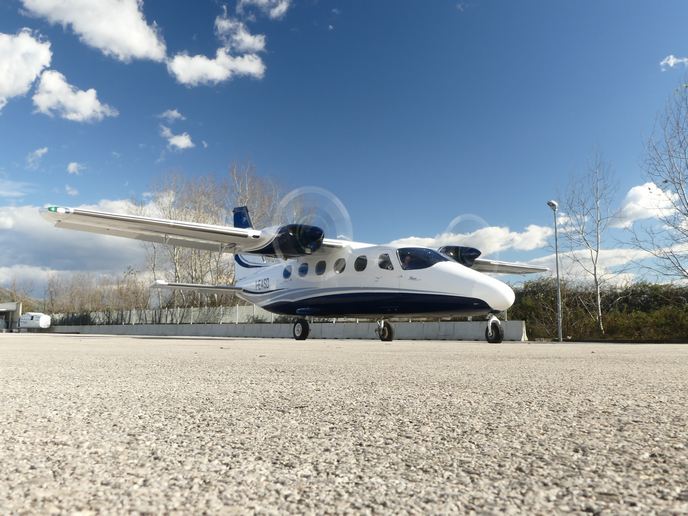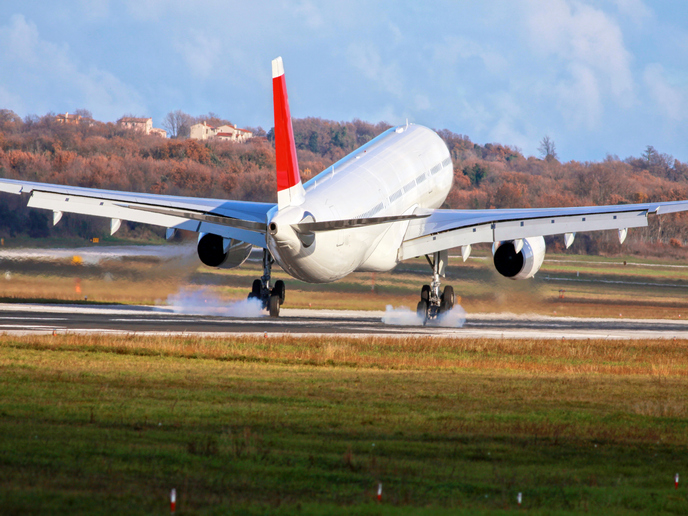Pros significantly outweigh cons in a new diesel engine for general aviation
GA encompasses a wide range of important services. These include emergency medical flights, law enforcement, firefighting, time-sensitive cargo services, business travel, flight training and crop spraying. Smaller planes used in GA applications (around 10 seats or less) utilise piston engines rather than large turbines. Historically, the piston engines have run on AVGAS (aviation gasoline) or, less often, MOGAS (petrol, used in ground vehicles including cars) rather than diesel because diesel engines are heavy, resulting in higher fuel consumption. As part of its ambitious Clean Sky(opens in new window) programme for climate neutrality and industrial competitiveness in the aerospace sector, Europe is moving away from AVGAS to highly efficient diesel engines. The high costs of AVGAS, the difficulty in some countries of supply and environmental concerns related to a highly toxic lead additive are among the drivers. With the support of the Clean Sky 2 Joint Undertaking, a public-private partnership between the European Commission and the European aeronautics industry, the EINSTAIN project is fuelling the transition with the tools required to study and design the piston-diesel engine configurations Europe is seeking.
Lifting engine technology to new heights
The objection to diesel engines to date has been their greater weight compared to AVGAS ones. Building on automotive developments leading to simpler and lighter-weight gearboxes and advances in engine technology, EINSTAIN saw a path forward for diesel engines. According to Amedeo Fogliano of TECNAM(opens in new window), project coordinator, “the most unexpected challenge was minimising lift and drag given the huge impact on weight of the frontal section inlets due to increased heat exchange requirements.” In the end, overcoming this challenge led the team to surpass original goals. Achieving required engine mount sizing and simulation of inlet flow to improve the design led to significantly enhanced knowledge of modal analysis and heat exchange. A multidisciplinary approach with a numerical-experimental analysis enabled the team to keep performance up and weight down.
Innovation takes flight
Engineers applied that knowledge to create a digital installation mock-up of SR460(opens in new window), a six-cylinder air/oil-cooled turbo-diesel engine under development at SMA(opens in new window). The team also used the modular and scalable design tools for aircraft design to meet a faster time to market of diesel technologies on smaller airplane models. The diesel engine is now a new product in TECNAM’s portfolio, and it is currently being flight-tested on the TECNAM P2010 aircraft(opens in new window), a 4 seat aeroplane.
The benefits ‘outweigh’ the costs
Fogliano states: “Even if the maintenance costs and basic dry weight of a diesel engine are higher compared to AVGAS ones, a good design enables lower consumption of a cheaper fuel that is easy to find for a given flight. Thus, overall flight cost can be significantly reduced – by about 30 %.” Other benefits of the diesel engine include simpler technology (no ignition system, carburettors or reduction gear) that is easier to use by pilots, better engine cooling, high torque at low propeller speed, lower fuel consumption for higher power and a lower fuel flashpoint in case of an accident. The novel high-efficiency diesel engine for GA eliminates dependence on expensive, often-hard-to-find AVGAS. Not only will it reduce the cost and environmental impact of existing GA services, it opens new opportunities for connecting people and the services they rely on, even in remote locations such as islands around the world.







